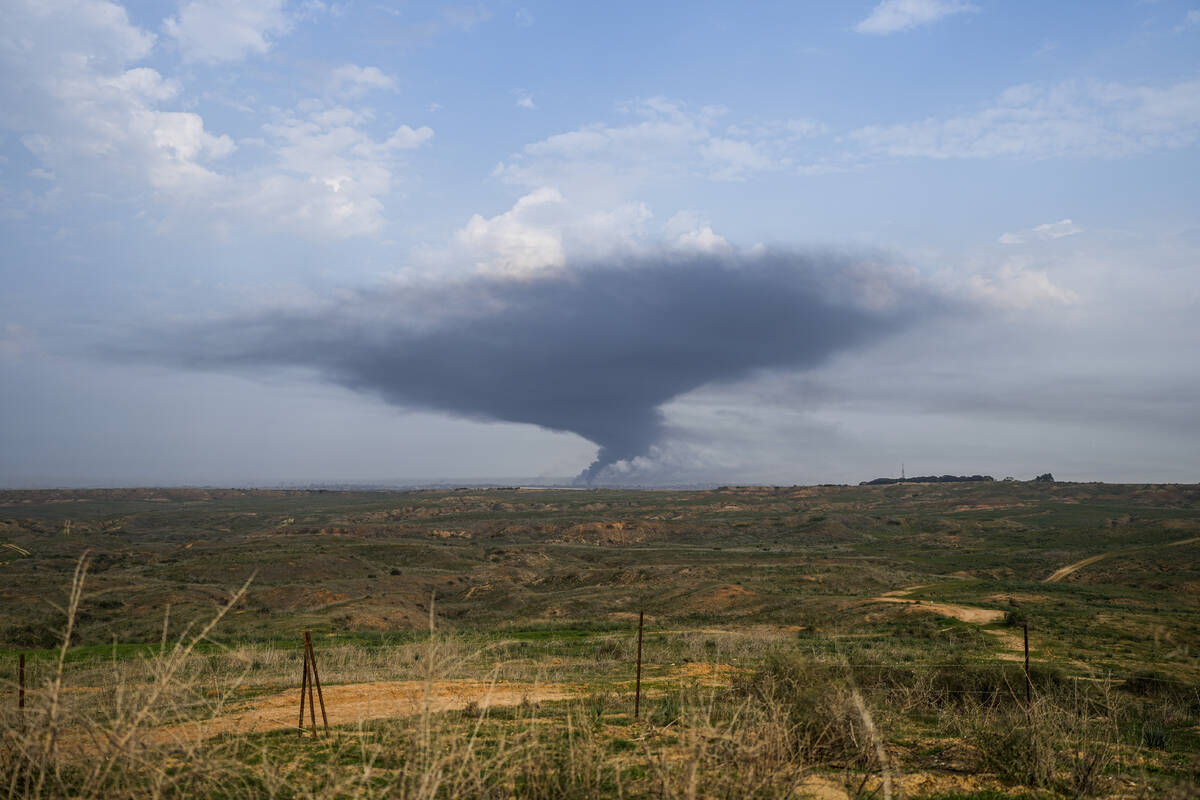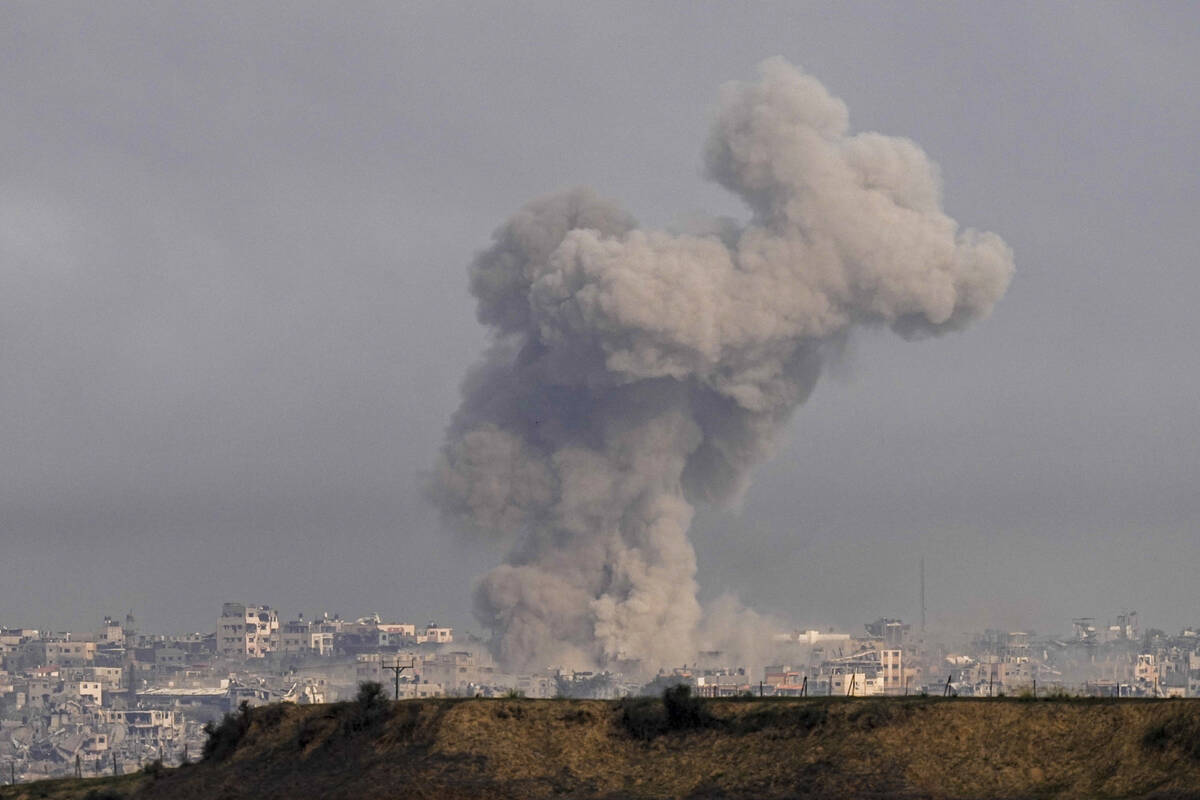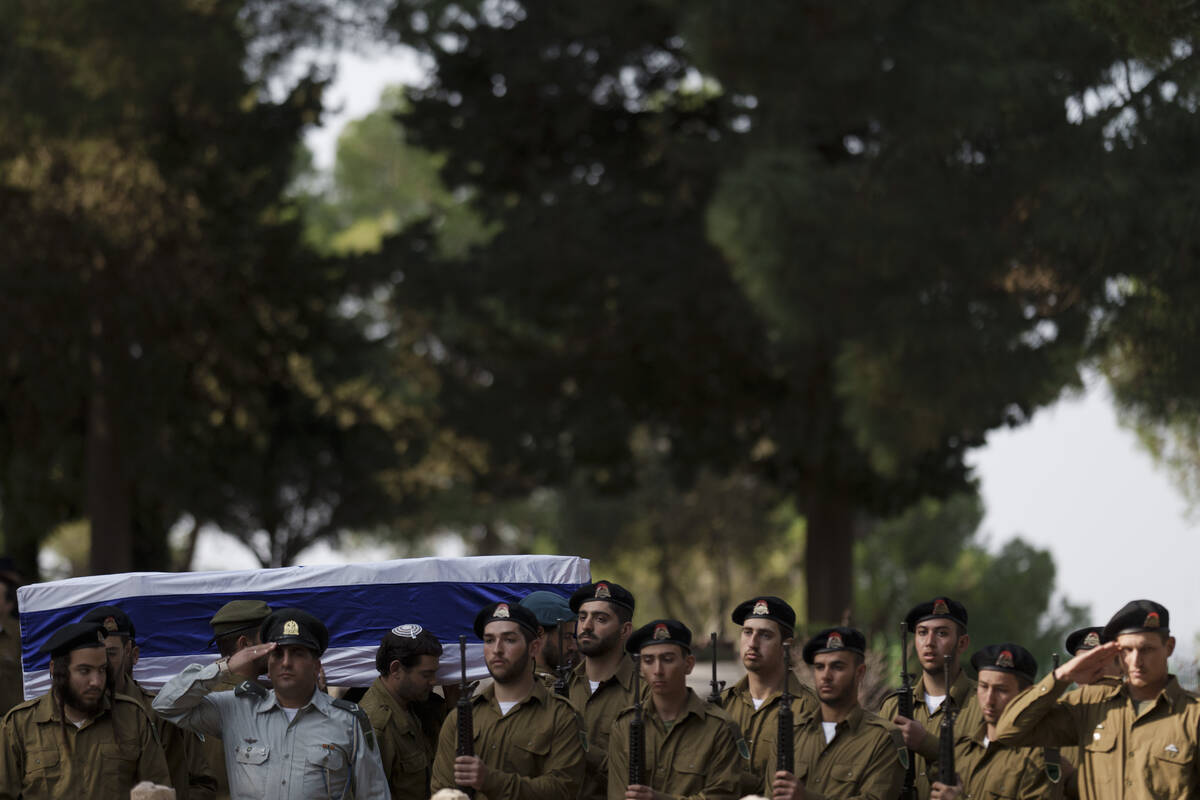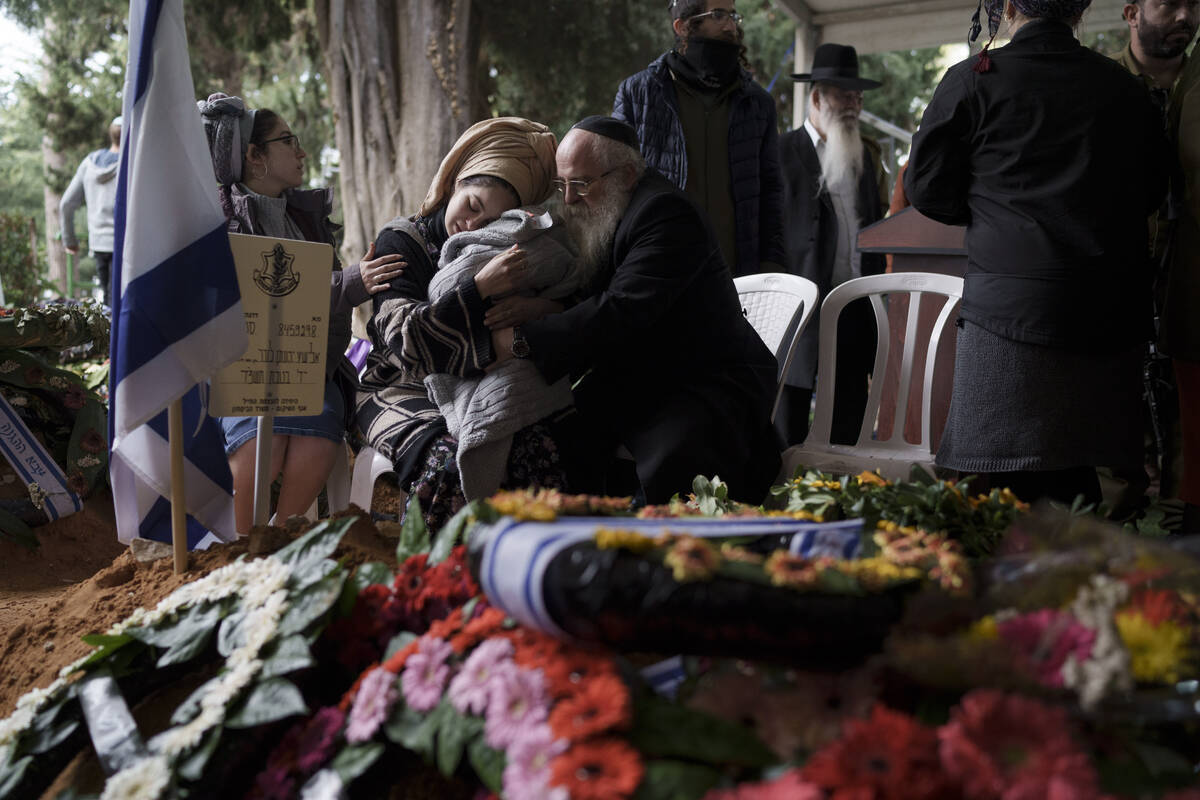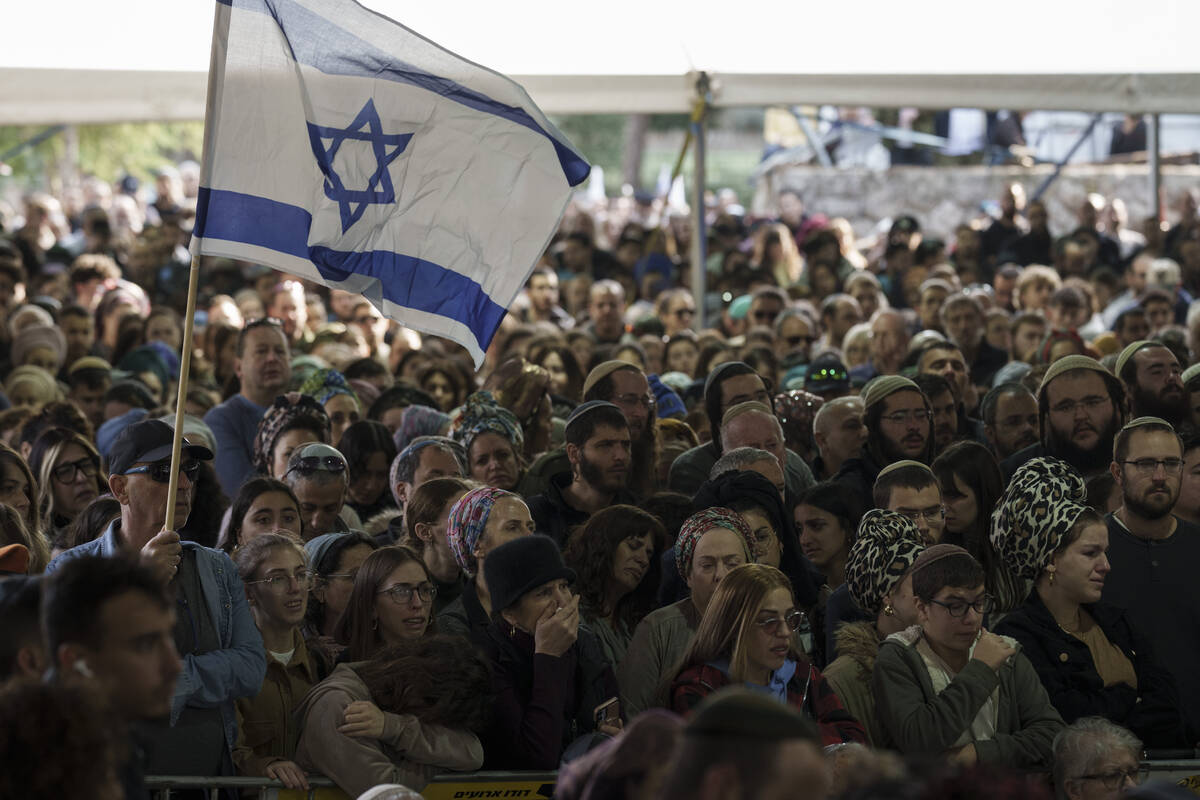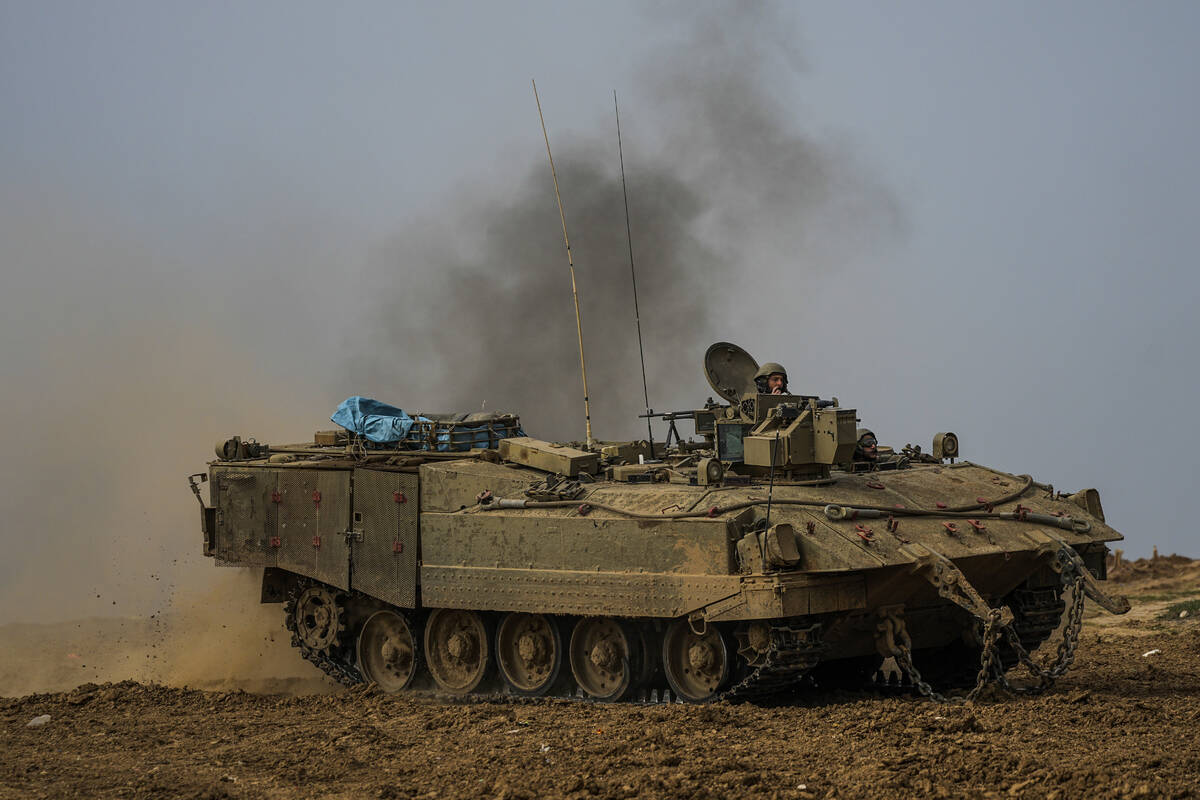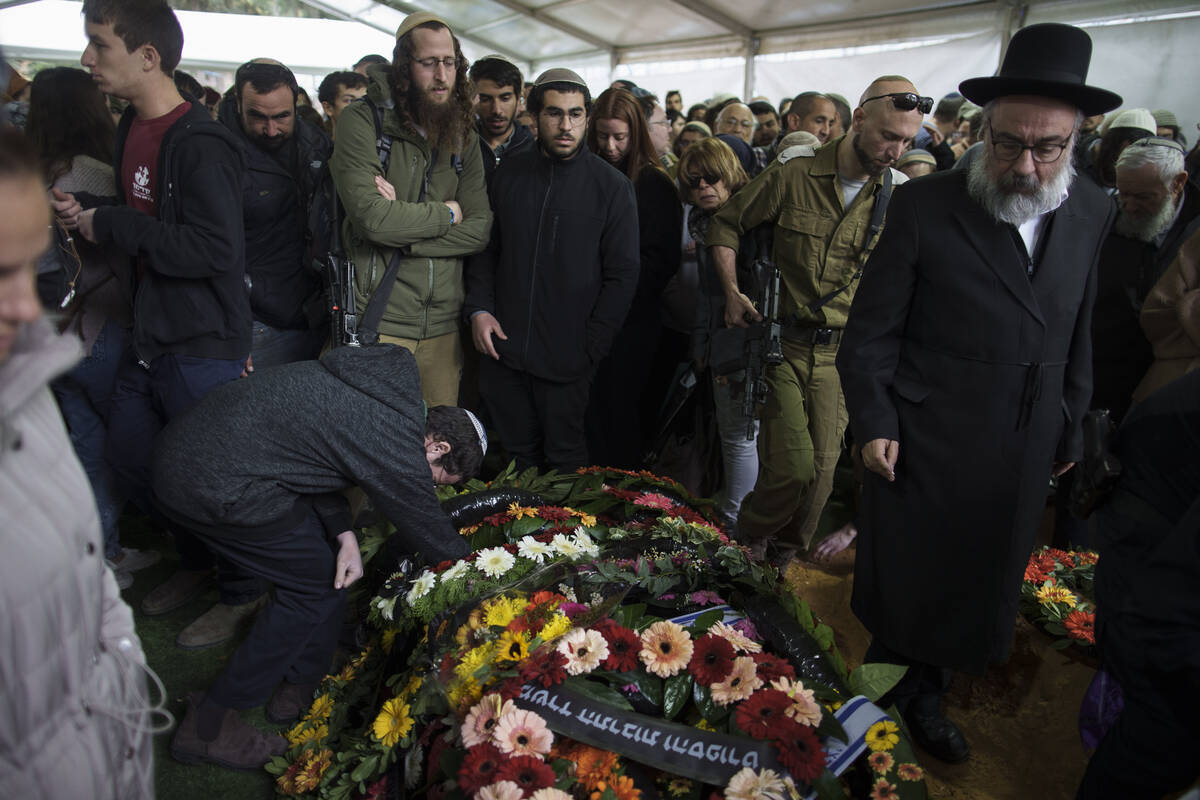Hamas denies Iran claim that Oct. 7 attack was revenge for Soleimani assassination
DEIR AL-BALAH, Gaza Strip — A spokesman for Iran’s Revolutionary Guard claimed Wednesday that the deadly Hamas-led terrorist attack in southern Israel on Oct. 7 was launched in retaliation for the 2020 killing of Gen. Qassem Soleimani, head of Iran’s elite Quds Force, in a U.S. drone strike in Iraq.
Hamas promptly denied the claim, in a rare public spat between the Palestinian terrorist group and its main sponsor.
The paramilitary guard’s spokesman Ramezan Sharif made the comments at a news conference where he threatened retaliation for the killing of another top Iranian military figure, Gen. Razi Mousavi, who was killed in an alleged Israeli airstrike in Syria on Monday.
Iran’s official news agency IRNA described Mousavi as a close companion of Soleimani, who was the architect of the country’s terrorist proxies from Afghanistan to Yemen, including Hezbollah and Hamas.
Soleimani was designated as a terrorist by the United States in 2011. Iran has long vowed to destroy Israel.
Sharif said that the Oct. 7 attack — in which some 1,200 people were killed in Israel and 240 taken hostage — was “one of the acts of revenge by the resistance front against the U.S. and the Zionists for the assassination of the martyr Soleimani.”
Hamas in a statement denied Sharif’s characterization and said the Oct. 7 operation was launched in response to threats to the al-Aqsa mosque in Jerusalem, and to the “Zionist occupation and its ongoing aggression against our people and our holy sites.”
Iranian and Hamas officials have previously denied that Iran ordered or played a role in planning the incursion.
Hamas officials have pushed — sometimes publicly — for Iran and affiliated terrorist groups, including the Lebanese Hezbollah, to intervene more forcefully against Israel in the ensuing war, which has killed more than 21,100 Palestinians, mostly civilians, in the Gaza enclave, according to the Hamas-run Health Ministry in Gaza. The count doesn’t differentiate between civilians and combatants.
“Hamas did not want the progress and prosperity that normalization between Israel and Saudi Arabia could bring to this entire region,” said Israel’s military spokesman, Rear Adm. Daniel. “We seek a better future for all people in the region. Hamas seeks death and destruction. Which is why it dragged us into war.”
Israel blames Hamas for the high civilian death toll in Gaza because the terrorists operate in dense, residential areas. The military says it has killed thousands of terrorists, and that 164 of its soldiers have been killed since the ground offensive began.
Israel broadens offensive
Israel launched heavy strikes across central and southern Gaza overnight and into Wednesday after broadening its offensive against Hamas terrorists.
Residents reported heavy bombing in the built-up Bureij refugee camp in central Gaza, in the southern city of Khan Younis, and in the southern town of Rafah.
A home near Abu Mosab’s shelter was hit, but no one was able to reach the area, he said. Mobile phone and internet service was down for several hours before being gradually restored on Wednesday, the latest of several such outages that have complicated rescue efforts.
The Israeli military’s latest evacuation orders cover an area of central Gaza that was home to nearly 90,000 people before the war and now shelters more than 61,000 displaced people, mostly from the north, according to the U.N. humanitarian office.
Despite continuous U.S. calls for Israel to shift to a more precise assault, the military so far appears to be following the same pattern used in each earlier phase of the ground assault, in northern Gaza and Khan Younis.
Before troops move in, heavy bombardment targets what Israel says is Hamas’ tunnels and military infrastructure. Fierce urban fighting follows as troops move block to block, backed by airstrikes and shelling that the military says aim to force out pockets of terrorists.
Israel has said the bombing campaign and ground offensive are necessary to dismantle Hamas and prevent a repeat of its Oct. 7 terrorist attack.
Achieving its goals, Israel has said, will take “many months.” An estimated 129 hostages remain in captivity after dozens were freed.
U.S. calls for Israel to curb civilian casualties and international pressure for a cease-fire have had little effect.
Other fronts
The war has ignited other fronts across the Middle East.
Israel and Lebanon’s Hezbollah terrorist group have repeatedly traded fire along the border. An Israeli strike on a family home overnight killed a Hezbollah fighter, his brother and his sister-in-law, local officials and state media said Wednesday. Another family member was wounded.
In the West Bank, Israeli forces killed at least six Palestinians during an overnight raid in the refugee neighborhood of Nur Shams, according to the Palestinian Health Ministry.
As fears of a wider conflict mount, the U.S., Qatar and Egypt have been working on a new agreement to release more hostages. President Joe Biden spoke with the ruling emir of Qatar on Tuesday.
Hamas says no more hostages will be released until Israel ends the war. It has offered to trade the remaining captives for large numbers of Palestinian prisoners, including high-profile terrorists. Israel has rejected the demand.
———
Israel Hayom contributed to this story. Magdy and Keath reported from Cairo. Associated Press writer Najib Jobain contributed from Rafah, Gaza Strip.



